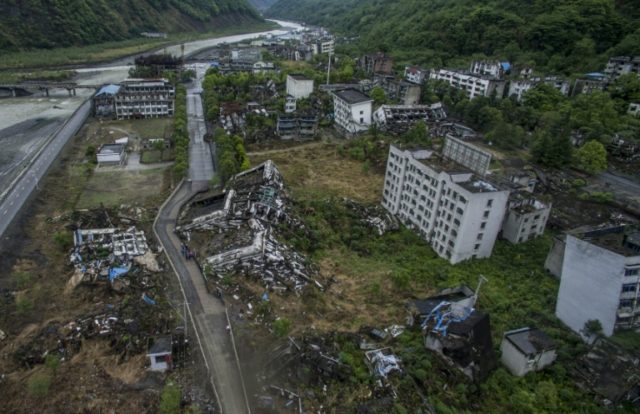Beijing (AFP) – China on Saturday marks the 10th anniversary of a massive earthquake that killed tens of thousands in southwest Sichuan province and left scars on the nation that have yet to fully heal.
More than 87,000 were left dead or missing when a 7.9-magnitude quake struck Sichuan on the afternoon of May 12, 2008, including 5,335 school pupils.
The disaster provoked widespread grief in China, but also outrage after it emerged 7,000 schools were badly damaged, triggering accusations of shoddy construction, corner-cutting and possible corruption, especially as many other buildings nearby held firm.
A decade on, the government has still never released an official investigation into the accusations.
Even now campaigners and parents are still seeking answers on how the quake destroyed so many schools when it struck during afternoon classes.
They became known as “tofu schools” in China, likening their structural instability to the popular soft bean curd dish.
The earthquake may have been one of the most pivotal events in China’s recent history.
It inspired a generation of journalists and activists, catapulting artist Ai Weiwei — who organised a probe into the school collapses — to fame.
Huge donations to relief funds at the time popularised the idea of private giving, inspiring the creation of a host of new charitable organisations.
And as the country united in the face of the tragedy, it — along with the 2008 Summer Olympics — helped to crystallise a new sense of national identity.
But authorities quickly moved to tamp down the new spirit of openness, arresting critics and journalists alike.
Ai Weiwei was beaten by police and held in detention for months. He has since left the country.
And a plethora of scandals tainted the new enthusiasm for giving, with the Red Cross, in particular, caught up in a huge scandal over misdirected funds.
Today, the cities and villages that were destroyed have mostly been reconstructed, after the government poured billions into the recovery effort.
New roads, power lines, and communications link the once remote areas to the provincial capital Chengdu.
The standard of living has improved substantially for many survivors, who have benefited from tourists flooding into the region to see the ruins.
But the scars of the disaster, physical and mental, remain.

COMMENTS
Please let us know if you're having issues with commenting.